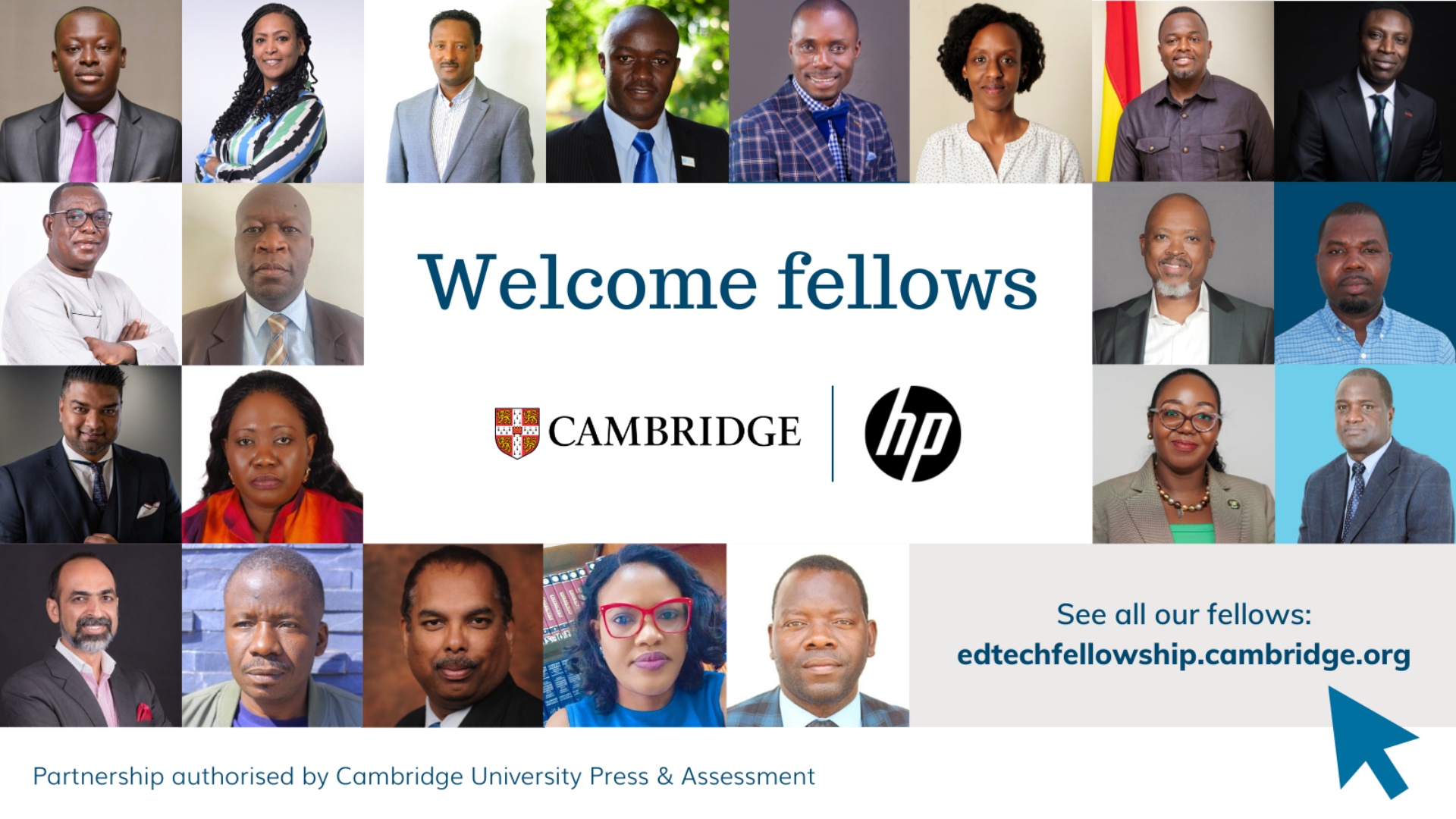- HP has announced the 25 African edtech leaders that have been chosen as part of a new fellowship programme from Cambridge Partnership for Education.
- Edtech leaders from 13 Sub-Saharan Africa countries have been selected, with six coming from SA.
- The first cohort will work to increase the quality and equity of learning through digital transformation in education.
Kicking off in September this year, HP has announced the 25 African edtech leaders that will be part of the first cohort for a newly launched fellowship programme at Cambridge University.
“The HP Cambridge Partnership for Education EdTech Fellowship is a seven-month programme that aims to grow participants’ knowledge and skills to lead impactful EdTech transformations in their education systems,” the company explained in a press release sent to Hypertext.
HP notes that the first cohort of EdTech fellows will work to increase the quality and equity of learning through digital transformation in education systems across Sub-Saharan Africa.
“Cambridge and HP selected the group from 400 applications. The first cohort of their HP Cambridge Partnership for Education EdTech Fellowship includes government officials working in education and leaders from private and not-for-profit EdTech organisations,” it added.
This first cohort of fellows includes senior government officials responsible for national digital education initiatives. The 25 edtech leaders were selected from 13 countries across Sub-Saharan Africa, namely Botswana, Eswatini, Ethiopia, Ghana, Kenya, Malawi, Nigeria, Rwanda, Sierra Leone, South Africa, Uganda, Zambia, and Zimbabwe.
“Our first EdTech fellows have huge remits, and huge strengths. They are responsible for turning policy into action. Supported by one another, tutors and coaches, the fellows will build healthier EdTech ecosystems where grassroots innovations are promoted, effectively evaluated and successfully scaled to help combat learning crises today and increase education system resilience for the future,” highlighted Jane Mann, MD of Cambridge Partnership for Education, regarding the value of the programme.

The full list of fellows in the first cohort are as follows:
Botswana
- Nicodemus Merafhe, chief education officer, Government of Botswana, Ministry of Education & Skills Development, the Department of ICT and Media Services.
Eswatini
- Martha Shongwe, chief inspector for Secondary Education, Ministry of Education and Training.
Ethiopia
- Dr Zelalem Assefa Azene, CEO, ICT and Digital Education, Ministry of Education.
Ghana
- Catherine Agyapomaa Appiah-Pinkrah, director, General Administration, Ministry of Education,
- Akwasi Addae-Boahene, advisor to former Minister, Transforming Teaching, Education and Learning, T-Tel,
- Miracule Daniel Gavor, executive director of Ghana Society for Education Technology,
- Gyamfi Adwabour, executive director, Center for National Distance Learning and Open Schooling.
Kenya
- John Masika, assistant director – TVET Digital Transformation, Technical and Vocational Education and Training Authority.
Malawi
- Dr Joshua Valeta, director of Open, Distance and e-Learning, Ministry of Education.
Nigeria
- Dr Frances Alimigbe, assistant chief education officer, Teachers Registration Council of Nigeria,
- Ayodele Odeogbola, Co-Founder, Hybrid Learning Specialist, TedPrime Support Initiative,
- Dr Adetola Salau, political aide to the Executive Governor of Lagos State on Education,
- Soji Megbowon, principal education officer/lead researcher, Lagos State Ministry of Education.
Rwanda
- Bella Rwigamba, chief digital officer, Ministry of Education.
Sierra Leone
- Victor Abu Sesay, director of Technology and Innovation, Ministry of Technical and Higher Education.
South Africa
- Dr Neo Mothobi, chief education specialist, Ministry of Education,
- Roche Mogorosi, chief director – Schools Technology Support Services, Gauteng Department of Education,
- Shunmugam Padayachee, deputy director general: Teachers, Education Human Resource and Institutional Development, Department of Basic Education, Pretoria,
- Emmanuel Pillay, CEO, iTMaster (PTY) Ltd,
- Michael Mavimbela, Senior Education specialist – eLearning, Mpumalanga Department of Education,
- Adv. Jana Du Plooy, CEO, Acorn Education NPC / into space NPC.
Uganda
- Kenneth Bagarukayo, commissioner Research and Development, Ministry of Information and Communications Technology.
Zambia
- George Mutale, assistant director for ICT, Ministry of Education.
Zimbabwe
- Addi Mavengere, CEO, Learning Factory.
Pan-Africa NGO
- Hakeem Subair, CEO, 1 Million Teachers.
[Image – Photo by Julius Dūdėnas on Unsplash]

